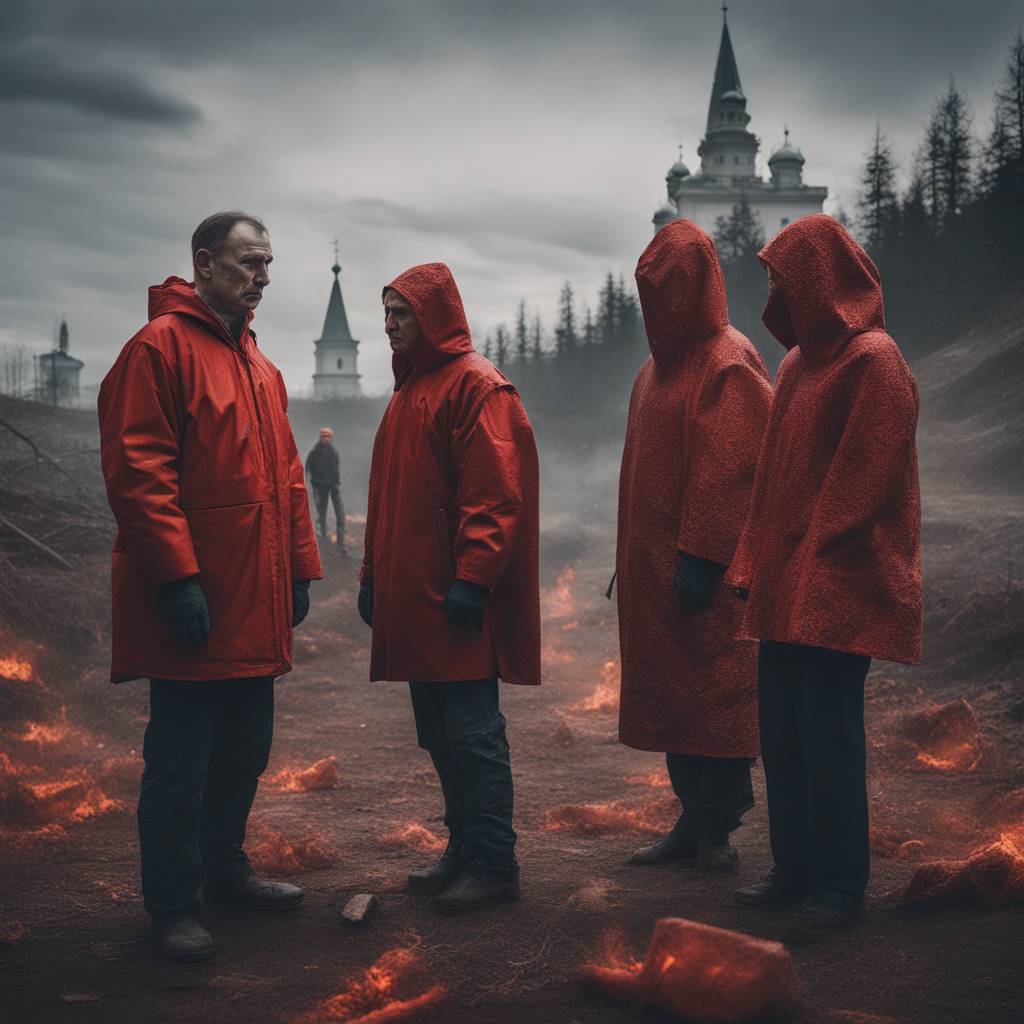In a shocking case in Russia, a court handed down severe sentences to three individuals for leading people into the woods of northern Russia and murdering them in what were described as satanic rituals. Andrei Tregubenko received a life sentence for his involvement in three killings, including luring a girl into a forest in Karelia and killing her in 2016. Alongside him, Olga Bolsakova, described as a satanist, also played a role in these heinous crimes. In a separate incident two months later, they, along with Tatiana Deryugina and Alexander Perevozchikov-Khmury, killed a man in the Leningrad region. Tregubenko was also involved in stabbing a man to death in the Moscow region, after which he and the others performed a ritual with the victim’s blood.
Deryugina and Perevozchikov-Khmury were sentenced to 13 and 15 years in prison, respectively, for their roles in these murders. Bolshakova, who was previously sentenced to an unspecified term, was also involved in these crimes. The details of these satanic rituals and murders have shocked the nation and raised concerns about the activities of individuals involved in such acts. The court’s decision to impose severe punishments sends a strong message that such heinous crimes will not be tolerated in Russian society.
This case has generated significant public interest and outrage in Russia, with many expressing shock at the brutality and depravity of the crimes committed by the individuals involved in these satanic rituals. The fact that they targeted innocent victims and engaged in violent and ritualistic killings has sparked a broader conversation about the presence of satanism and cult activities in the country. The nature of these crimes has also raised questions about mental health, criminal behavior, and societal influences that may have contributed to the individuals’ actions.
The sentencing of Andrei Tregubenko to life in prison, along with the significant prison terms handed down to the other individuals involved, is seen as a form of justice for the victims and their families. It also serves as a warning to others who may be tempted to engage in similar acts of violence and ritualistic behavior. The severity of the punishments reflects the seriousness with which the Russian authorities view these crimes and their commitment to upholding the rule of law and protecting the safety and security of their citizens.
The case highlights the need for greater awareness and vigilance when it comes to identifying and addressing criminal behavior, especially when it involves cult activities and satanic rituals. The shocking nature of these crimes serves as a reminder of the importance of preventing and combating such acts of violence and ensuring that those responsible are held accountable for their actions. The court’s decision to hand down harsh sentences in this case sends a clear message that such behavior will not be tolerated and that those who commit such atrocities will face serious consequences.
Overall, the sentencing of the individuals involved in these heinous crimes represents a significant moment in Russia’s legal system and underscores the importance of upholding justice and protecting society from violent and criminal behavior. The case has shone a spotlight on the presence of cult activities and satanic rituals in the country, prompting a broader conversation about these issues and the need for greater awareness and prevention efforts. By holding the perpetrators accountable and imposing strict punishments, the court has sent a strong message that such acts of violence will not be condoned or overlooked in Russian society.













